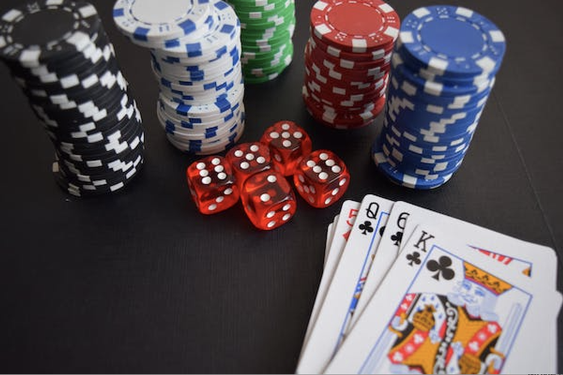You are dealt pocket 4s. You raise because you are hoping to eliminate the many
hands with overcards that can beat you. At least that’s what many poker books
and many big-name professionals tell you to do.
But not Phil Gordon.
With pocket pairs, especially small ones, you just want to call because you have
the chance to make a lot of money if the field is bigger, says the author of Phil
Gordon’s Little Green Book.
"Before, I might’ve raised to limit the field," Gordon says, "but
what I realized through some mathematical study is that you want as many people
as possible when you have the middle pocket pair, and you want to get in cheap.
You want to flop a set, and you want as many people in as possible so someone
else flops something too."
The retooled Gordon found himself with pocket deuces in the small blind in a $1,000-buy-in
World Series of Poker no-limit hold ‘em event.
"A tight player raised from middle position," says Gordon, a prominent
member of the Full Tilt Poker team. "I had to call about one-12th of my stack
with pocket deuces."
Gordon called. It was heads-up. If the flop hit him, he could play the hand aggressively.
If the flop missed him, he could get away from the hand. The flop came 2-Q-K.
Gordon led out with his set of deuces.
"He raised with his A-K all in," Gordon says. "I called. He was
drawing nearly stone-cold dead. The only way he could win is go runner-runner
full house or runner-runner straight. There’s almost no way he can win."
The turn came a king, giving Gordon a full house of 2s over kings. Gordon’s
opponent was dead to the case king or one of three queens, which would’ve
given him a better full house.
The river came a blank. Gordon busted his opponent and went on to finish eighth
in the event, collecting $66,055.
Gordon would’ve liked a bigger field against which to play his set. But his
point – what made his newfound respect for calling with pocket pairs instead
of trying to run people out of the pot – is that it takes advantage of the
way many novice players overvalue their hand when they hit top pair.
"When they flop top pair/top kicker, all the money’s going into the
pot," Gordon says. "When you flop a set and they have one pair, they’re
about 2 percent to win. In hold ‘em, pocket aces vs. 7-2, that’s 13
percent, so you’re five times better off when you flop a set against one
pair than any other situation in hold ‘em."
Gaming: Poker [Pocket Pairs]
Pocket Pairs: Call, Don't Raise
By Steve Rosenbloom
Article posted on 1/30/2006
This article has been viewed 2625 times.



